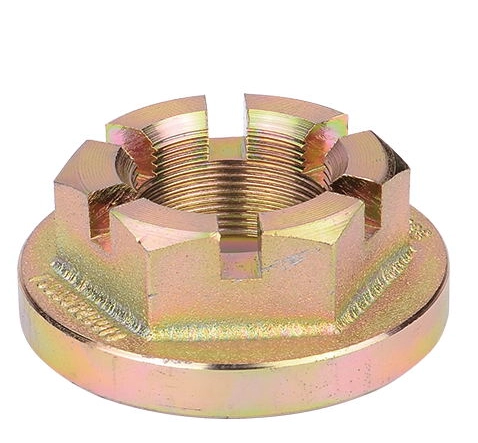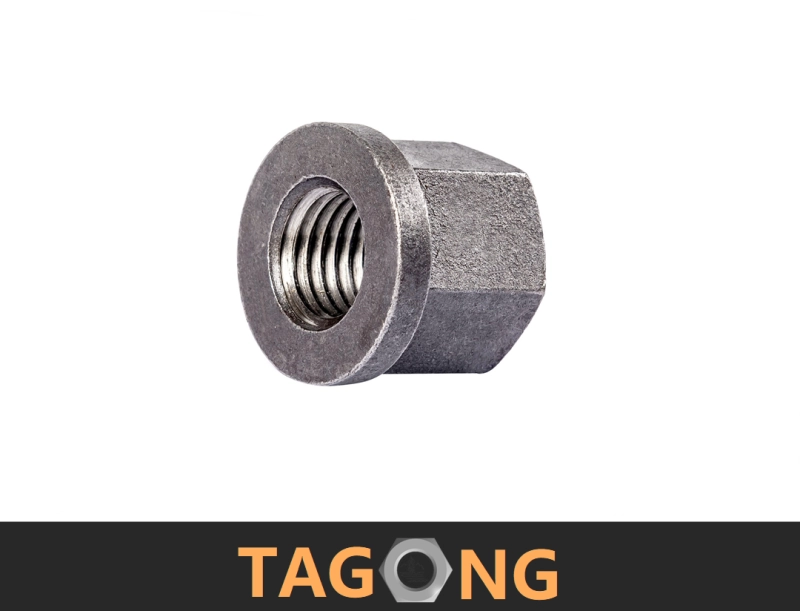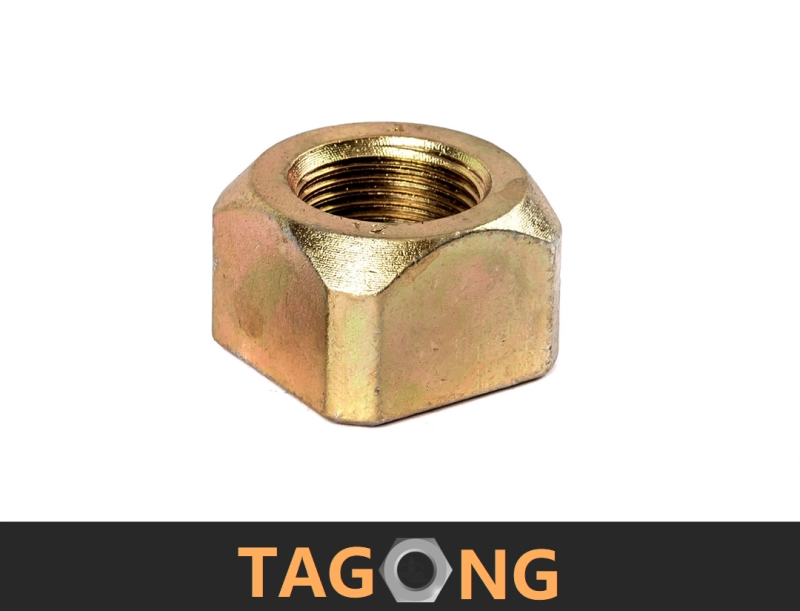With over 38 years of experience, TAGONG is the expert in manufacturing standard fasteners and special fasteners
+86 15160779301
+86 18906098857
Understanding Bolts, Wheel Nuts, and DIN74361 Specifications in Auto Parts
2025-05-03
When it comes to automotive applications, the importance of quality fastening components such as bolts and wheel nuts cannot be overstated. Bolts and wheel nuts are fundamental parts used to secure various components in vehicles, ensuring safety and reliability. Among the many specifications governing these fasteners, DIN74361 is a notable standard that outlines the requirements for wheel bolts used in automotive applications.
DIN74361 specifically details the dimensions, material properties, and performance characteristics of these crucial components. It is essential for manufacturers and suppliers in the industrial equipment and fastening sectors to comply with these standards to ensure optimal safety and functionality in vehicles. In short, bolts and wheel nuts that meet DIN74361 specifications provide the robustness and durability needed to withstand the stresses faced during operation.
The wheel nut is a type of fastener that is designed to secure the wheel to the vehicle's hub. A high-quality wheel nut plays a critical role in maintaining the integrity of the wheel assembly, preventing wheel detachment while the vehicle is in motion. Bolts, on the other hand, are used to attach various components within the vehicle, including the engine, chassis, and suspension systems. Both components must be manufactured to precise specifications to ensure they can handle the forces exerted during driving.
One key consideration when selecting bolts and wheel nuts according to DIN74361 is the material used. Fasteners are typically made from high-strength steel or other alloys that provide the necessary tensile strength and corrosion resistance. It's also vital to consider the finish of the bolts and nuts, as different coatings can protect against environmental factors that may affect performance over time.
Installation practices for bolts and wheel nuts are equally important. Proper torque specifications must be adhered to when fastening, as overtightening or undertightening can lead to component failure. Using a torque wrench to achieve the recommended settings ensures that the fasteners are secure without causing damage.
In addition to compliance with DIN74361, industries often benefit from regular inspections and maintenance of bolts and wheel nuts. This practice not only extends the lifespan of these components but also enhances vehicle safety. Any signs of wear, such as corrosion or deformation, should prompt immediate replacement to avoid potential hazards on the road.
In conclusion, understanding the significance of bolts and wheel nuts, particularly those adhering to DIN74361 standards, is crucial for anyone involved in the automotive and industrial sectors. By ensuring the quality and proper installation of these fasteners, businesses can enhance safety and performance in their applications.
DIN74361 specifically details the dimensions, material properties, and performance characteristics of these crucial components. It is essential for manufacturers and suppliers in the industrial equipment and fastening sectors to comply with these standards to ensure optimal safety and functionality in vehicles. In short, bolts and wheel nuts that meet DIN74361 specifications provide the robustness and durability needed to withstand the stresses faced during operation.
The wheel nut is a type of fastener that is designed to secure the wheel to the vehicle's hub. A high-quality wheel nut plays a critical role in maintaining the integrity of the wheel assembly, preventing wheel detachment while the vehicle is in motion. Bolts, on the other hand, are used to attach various components within the vehicle, including the engine, chassis, and suspension systems. Both components must be manufactured to precise specifications to ensure they can handle the forces exerted during driving.
One key consideration when selecting bolts and wheel nuts according to DIN74361 is the material used. Fasteners are typically made from high-strength steel or other alloys that provide the necessary tensile strength and corrosion resistance. It's also vital to consider the finish of the bolts and nuts, as different coatings can protect against environmental factors that may affect performance over time.
Installation practices for bolts and wheel nuts are equally important. Proper torque specifications must be adhered to when fastening, as overtightening or undertightening can lead to component failure. Using a torque wrench to achieve the recommended settings ensures that the fasteners are secure without causing damage.
In addition to compliance with DIN74361, industries often benefit from regular inspections and maintenance of bolts and wheel nuts. This practice not only extends the lifespan of these components but also enhances vehicle safety. Any signs of wear, such as corrosion or deformation, should prompt immediate replacement to avoid potential hazards on the road.
In conclusion, understanding the significance of bolts and wheel nuts, particularly those adhering to DIN74361 standards, is crucial for anyone involved in the automotive and industrial sectors. By ensuring the quality and proper installation of these fasteners, businesses can enhance safety and performance in their applications.
Bolts Wheel Nuts DIN74361 Auto Parts
RELEVANT INFORMATION
Comparing M24 Truck Nuts: Yellow Zinc vs. Other Coatings for Maximum Durability
Comparing M24 Truck Nuts: Yellow Zinc vs. Other Coatings
Introduction to M24 Truck Nuts and Their Importance in Industrial Applications
In the world of industrial equipment and components, **M24 truck nuts** play a pivotal role in securing various assemblies. These nuts, with a nominal diameter of 24 millimeters, are widely used in heavy-duty applications such as trucks, trailers, and construction
2025-05-06
Understanding Bolts, Wheel Nuts, and DIN74361 Specifications in Auto Parts
When it comes to automotive applications, the importance of quality fastening components such as bolts and wheel nuts cannot be overstated. Bolts and wheel nuts are fundamental parts used to secure various components in vehicles, ensuring safety and reliability. Among the many specifications governing these fasteners, DIN74361 is a notable standard that outlines the requirements for wheel bolts us
2025-05-03
Common Applications of Quadrangular Yellow Nuts in Various Industries
Common Applications of Quadrangular Yellow Nuts in Various Industries
Introduction to Quadrangular Yellow Nuts
Quadrangular yellow nuts, recognized for their unique shape and robust construction, are essential fasteners in numerous industrial applications. Their design offers superior grip and stability, making them ideal for high-stress environments. In this article, we will explore various indus
2025-04-30




